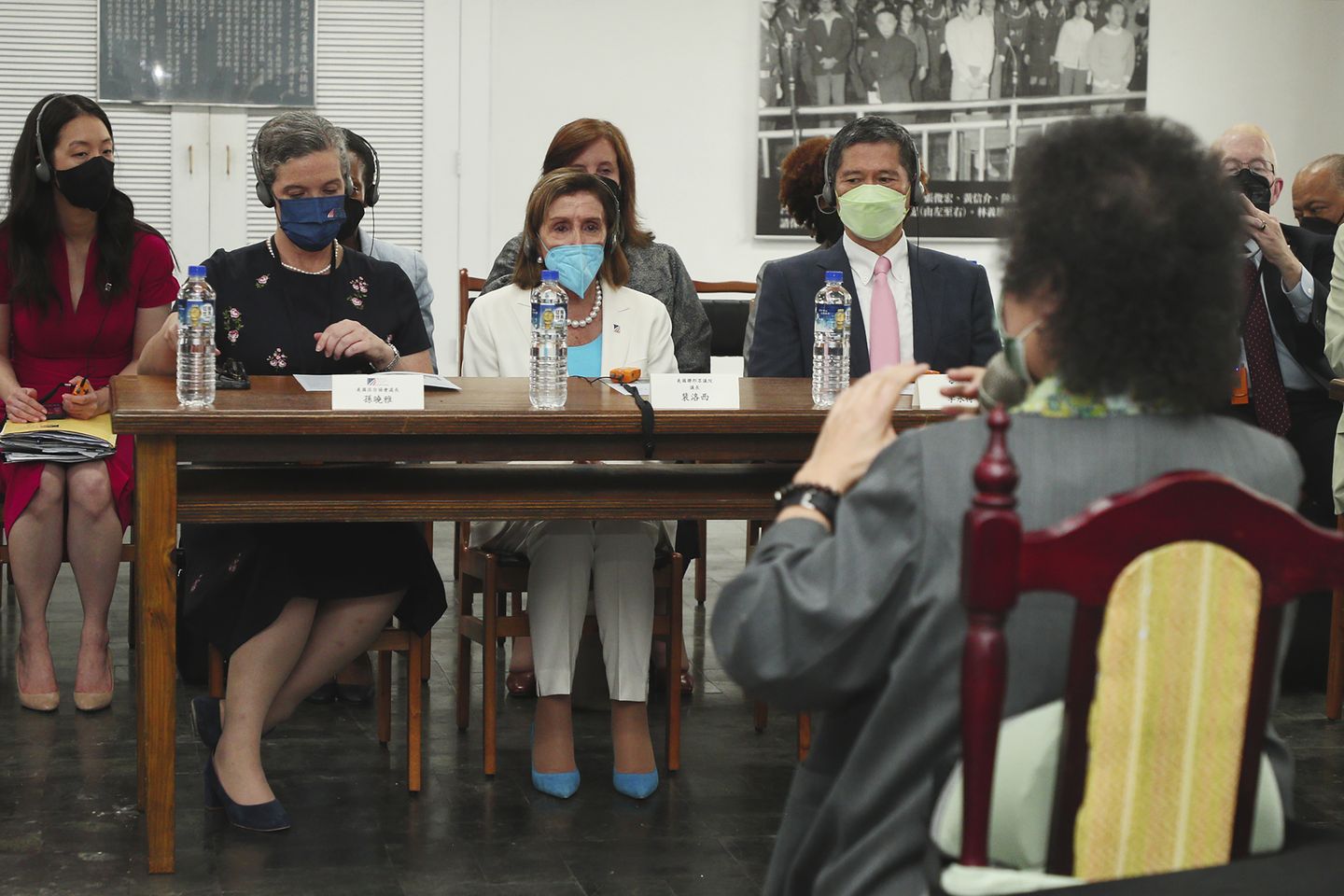

The Group of Seven industrial nations on Wednesday condemned China’s furious reaction to House Speaker Nancy Pelosi’s visit to Taiwan and said they were committed to “maintaining the rules-based international order, peace and stability across the Taiwan Strait and beyond.”
Secretary of State Antony Blinken and his G-7 counterparts warned against Beijing using the U.S. speaker’s visit “as a pretext for aggressive military activity,” and said China’s “escalatory response risks increasing tensions and destabilizing the region.”
“We call on the PRC not to unilaterally change the status quo by force in the region, and to resolve cross-Strait differences by peaceful means,” the foreign ministers said.
Chinese officials say Mrs. Pelosi and the Biden administration are at fault for going against longstanding pledges under the “One China” policy not to encourage the island democracy from breaking away from the mainland.
Mrs. Pelosi, California Democrat, who is leading a delegation with five other House Democrats through Asia, touched down in Taipei on Tuesday for a one-day stopover that included meetings with Taiwanese President Tsai Ing-wen among other officials.
She is the highest-ranking U.S. official to visit the self-governing island just over 100 miles off mainland China since then-House Speaker Newt Gingrich, Georgia Republican, more than two decades ago.
Chinese officials have loudly condemned the delegation and announced via China‘s state-run Xinhua News Agency that the People’s Liberation Army would conduct “a series of joint military operations around the Taiwan Island,” including live-fire drills in the Taiwan Strait. They also announced new economic sanctions on Taiwanese exports to China.
On Wednesday, the People’s Liberation Army’s Eastern Theater command announced that it would continue to conduct “joint combat training exercises” in the waters and airspace surrounding Taiwan involving troops from China’s Navy, Air Force, Rocket Force and Strategic Support Force.
Similar drills surrounding the self-governed island, which lies just 100 miles off of China’s mainland, are expected to last through Sunday.
The maneuvers mark a sustained uptick in tensions that could cast a shadow over China’s relations with the West for the foreseeable future. The Biden administration, which did not encourage Mrs. Pelosi’s visit, said the high-profile stopover does not represent any change in official U.S. policy regarding Taiwan and China.
The White House said it expects Beijing to “continue to react over a longer-term horizon,” National Security Council John Kirby told reporters.
“I couldn’t give you a date certain of what that horizon looks like, but we certainly would expect them to react even beyond her trip, including announcing additional large-scale fire exercises,” Mr. Kirby said.
He said there is no reason for Beijing to turn the visit into “some sort of crisis or use it as a pretext to increase aggressiveness and military activity in or around the Taiwan Strait.”
On Wednesday, the G-7 foreign ministers reiterated their “shared and steadfast commitment to maintaining peace and stability across the Taiwan Strait and encourage all parties to remain calm, exercise restraint, act with transparency, and maintain open lines of communication to prevent misunderstanding.”
